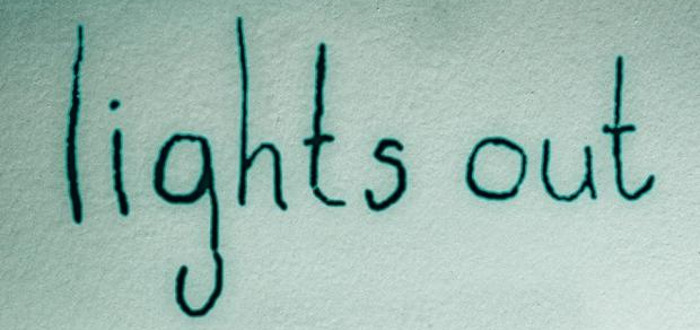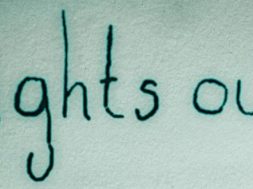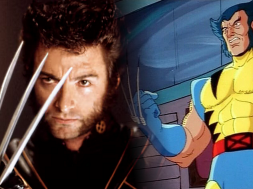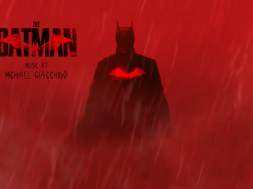
Horror is a genre that often benefits from as little explanation as possible. Nothing is more terrifying than the unknown and cruelty is all the moreso when it is without reason. Lights Out is a horror film with plenty of gumption for scares that spends far too much time explaining itself when it could be expanding on its potentially profound mental health metaphors.
Directed by David S. Sandberg, Lights Out is based on a short film of the same name. Also directed by Sandberg, the short went viral upon release in 2014 thanks to its chilling swiftness and clever concept. In it, a woman falls prey to a ghoul that’s only visible and moves via darkness, with light causing it to disappear. It’s a modernization of the boogeyman in the closet – a spectre that can attack at any time and go anywhere, as long as the lights are off.
The effectiveness of that original film lay in the time constraint forcing its one scare and bold idea into sharp focus. There was no time for dead air. Produced by mainstream horror stalwart James Wan, this feature-length equivalent is that same tense fright repeated in various different situations, threaded together with a hackneyed story of family tragedy that turns the film from a capable idea into a second-rate psychological chiller.
Living with his mother Sophie (Maria Bello), young Martin (Gabriel Bateman) is increasingly worried about her mental well-being as he finds her behaving increasingly erratically and talking to a mysterious entity at night. Seeking refuge with his older sister Rebecca (Teresa Palmer), Martin and Rebecca endeavour to find help for their mother, and the truth about the sinister being who they fear may have a hold on her.
Fans of 2014’s The Babadook will find most of the nuance Lights Out is trying to etch out of its premise very familiar. The movie uses the fragility of the mother-and-child bond to create a sentimental analogy of mental illness out of the antagonistic ghoul. But where The Babadook brought everything back down to the familial difficulties therein, forging legitimate emotional heft in the process, Lights Out loses any actual meaning it might have had is lost due to convoluted, nonsensical plotting.
Eric Heisserer‘s screenplay starts well enough with a mystery tied to the mother’s fragile mental state that seems to affect the whole family and other tried-and-tested tropes. But then, around the midway point, everything begins to unravel. The extended metaphor of the mother’s psychiatric illnesses clashes with the film’s attempt at a more cogent explanation for the monster, causing both to seem scattered and unfulfilled. Worse still, the discovery of how the monster – named Diana – came to be is almost laughably absurd, leaving the sense that the absence of a logical reasoning in favour of a doubling-down on the psychological allegory would’ve been the far more sensible choice.
All the same, the movie’s scares are memorable. Sandberg takes full advantage of the heightened production values with various different lighting setups and strong contrast of colour. Anywhere outside the family home has a bright spectrum of colours, while the home itself is muted in browns, yellows, reds and black, a trail of which the monster brings with it. Rebecca’s apartment is bright and vibrant until she’s visited by Diana, when a red neon sign becomes her saving grave. Another scene in which Martin and his mother have a movie night interrupted by the creature is one of the high-points in tension and performance, bathed in gloomy lamp-light on wooden furnishings. Despite all being a riff on the original short’s single setup, Sandberg does get great mileage out of it and manages to keep an air of freshness and a steadily dour mood to many of the frights.
Which is more the pity that it all culminates in such a poorly conceived final act. Just as the film’s take on depression and personality disorder seems to be drawing towards some semblance of clarity and closure, it ends with a grim finality almost insulting in its brazen attempt at shock. There’s no shortage of horror films showing the genre’s capability of exploring the darker points of mental ill-health in an enlightening way. Lights Out, despite the potential, is not one of them.












